In a story of resilience and triumph, Itumeleng Khune’s journey to football stardom defied all odds. From a failed trial and the grip of poverty to facing the shadow of Eugene Terreblanche, Khune’s unyielding spirit propelled him to greatness.
“If you can imagine it, you can achieve it” is the kind of stuff you only expect to hear from a motivational speaker. Even still, it sounds tediously cliché because the phrase has been overused and, in some instances, misused.
But that’s until you begin to follow the story of one Itu Khune. Some 24 years ago, after dramatically storming into the Kaizer Chiefs’ Under 13 team, the man popularly known as Itu, clad in the Reebok club jersey, tied a small blue, white, red and green cloth around his arm. It was meant to be an armband. He then hoisted a picture of the then-Amakhosi senior team and posed for a photo.
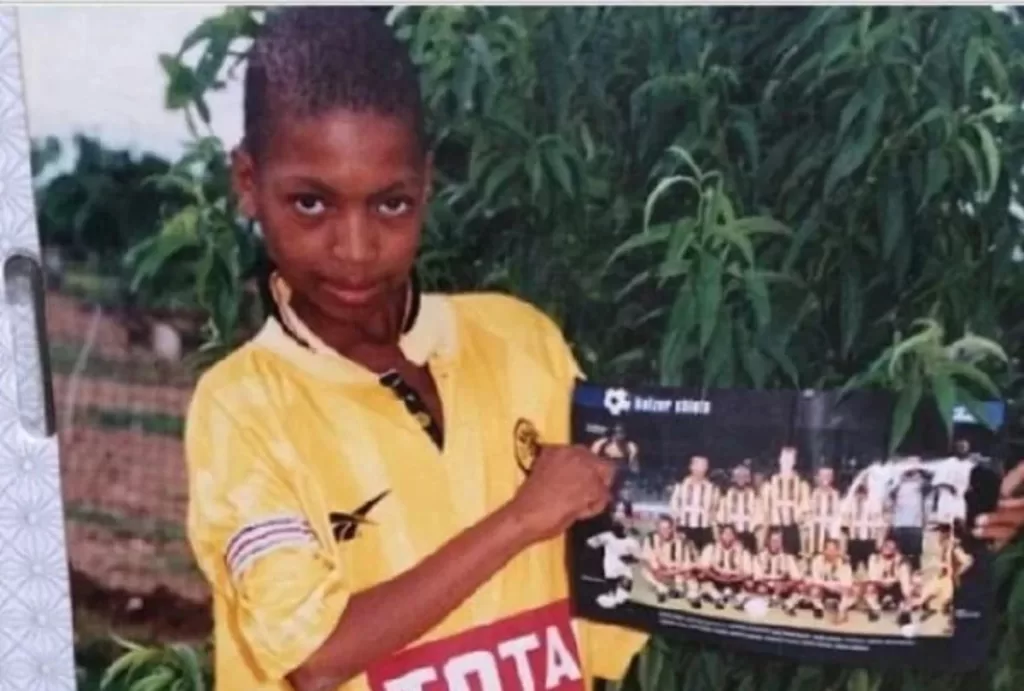
THE PHOTO SUMMED UP TWO OF ITUMELENG KHUNE’S DREAMS
In essence, the picture summed up two dreams – to play for one of the country’s biggest teams and to go on and captain the club.
Interestingly, when 12-year-old Khune, who hails from Tshing, Ventersdorp – a North West town of 4200 in the Dr Kenneth Kaunda District Municipality – won a place in Amakhosi’s junior set-up, his father had started working as a driver at a mine in Carletonville. The mining town of Carletonville lies west of Johannesburg and is about 80km from Ventersdorp.
For Itumeleng Khune, whose dream had always been to play for the Soweto giants, his dad’s move meant he had a fresh challenge in his life. He had to wake up at the crack of dawn, rushing to catch the train to Braamfontein, where Chiefs had enrolled him at New Nation College.
After a day of wrestling with the books, Khune would run as fast as his young legs could carry him to Milo Park, where young Chiefs hopefuls trained. After a gruelling training session, he would once again turn to his feet, running to Langlaagte station to catch the train home to Carletonville.
The next day, he would wake up at 5AM to do it again. For a youngster his age, it sounds like a baptism of fire, but it was one that Khune cherished. After all, he was lucky to be there. The football gods had just smiled upon him after he failed his initial trial at Chiefs.
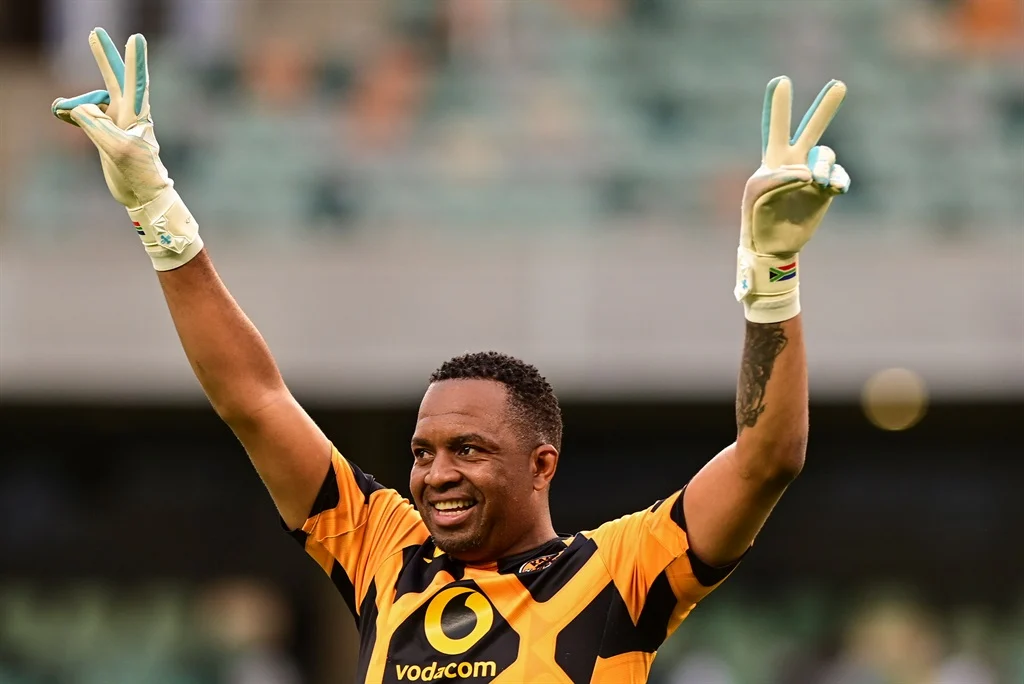
ITUMELENG KHUNE WAS SO DESPERATE TO PLAY FOR KAIZER CHIEFS
“Every time I always laugh when I tell this story. He was so desperate to play for Kaizer Chiefs,” says Jacob ‘Terror’ Sephooa, the then Kaizer Chiefs Under 13 coach.
Sephooa laughs uncontrollably as he remembers that Khune initially claimed he was a striker.
“He told me he was a striker. I had to play him where he was comfortable. So, when I was taking them through drills – shooting, turning and control. I noticed ukuthi yinyakanyaka, akukho lutho lapha [it’s a disaster, he couldn’t play as a striker],” Sephooa adds.
Khune, the striker, according to Sephooa, was not worth coaching. Broad-shouldered and a bit taller than the average 12-year-old, Khune was all passion and little talent.
Interestingly, the Amakhosi captain explains why the striking couldn’t work. “When I was young, I used to eat from the pot,” he explains. “I would wait for my mom to dish for everyone, and I’d take over the pot. The reason was that I’d have to wash the pot, so eating from it made the job easier.
“In the long run, I struggled with stomach cramps and playing as a striker meant running up and down the pitch.” It proved difficult, hence the switch to goalkeeping.
There could be no doubting his passion. He had, after all, travelled 160km from Ventersdorp for the initial trial. Failure was simply not an option.
“Itu came with his father the first time, and he dropped him off for the trials,” says Sephooa. “I told him and others that they had failed and they should go home and return the following year after improving. So, he went to the stands and started crying.”
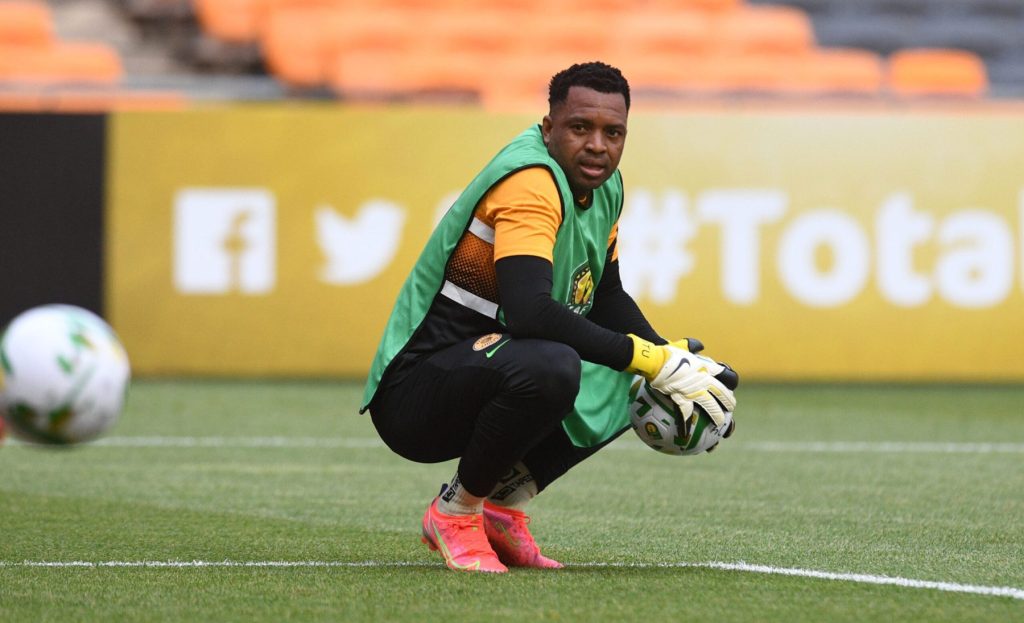
GUILT STRUCK TERROR SEPHOOA
Khune remembers that his dad had taken his last money, which could have been for groceries, to buy him soccer boots. In turn, he had assured his family that he would ace the trial.
Sephooa, who plied his trade for Chiefs and Moroka Swallows as a midfielder, recalls how a club staff member asked Khune where he was from. And guilt struck him when the message was relayed to him that the distraught young boy was from Ventersdorp.
“I was guilty thinking I didn’t give him a fair chance. So I gave him another chance, and afterwards, I was convinced I had made the right decision. He didn’t have the skills of a striker. I then said to him since he was a bit taller with broad shoulders, I gave him another chance and tried him in defence. But still, he wasn’t good enough,” he says.
Realising he would not make the grade was a hammer blow for a young Khune. Home is where the heart is, the saying goes, but Khune’s heart beats only for the Phefeni Glamour Boys. At 12, he already bled gold and black.
Khune found in Kaizer Chiefs the comfort that eluded him at home, where his family was stalked by hunger and hardship.
“I risked my life as a 12-year-old, travelling in a train for that distance,” says the former Bafana Bafana number one.
He did it because he was a big dreamer. It didn’t matter if he was eating or not eating. He learnt to accept the situation wasn’t good at home, and he decided he had to go out and change whatever had to be changed.
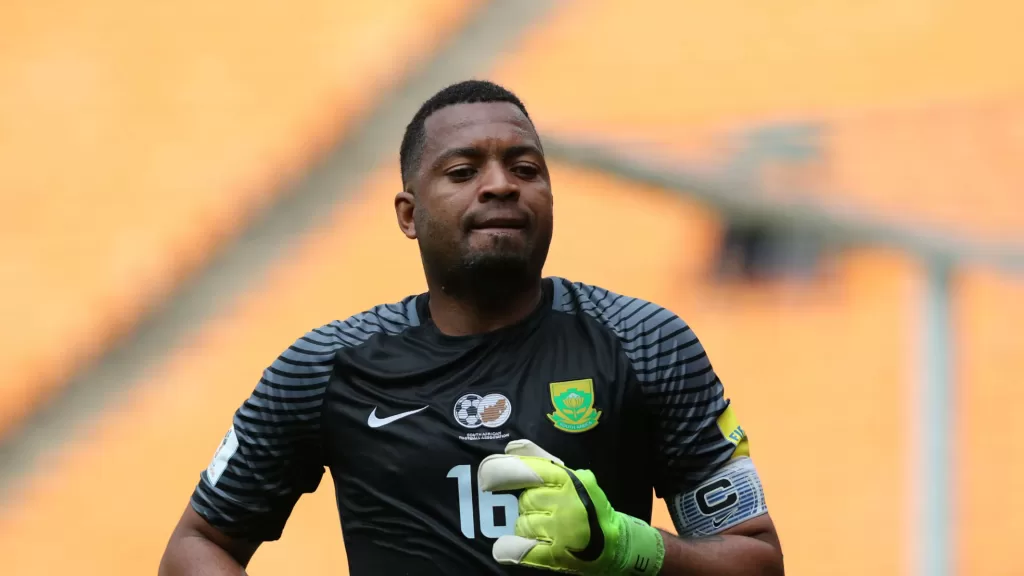
YOUNG KHUNE SLEEPING AT THE TRAIN STATION
At such a young age, he knew he only had one opportunity. Sometimes, it meant sleeping at the train station as he couldn’t get home, rousing the ire of his parents.
For all his hunger and determination, on that fine day back in 1999, Khune had now come face to face with failure. Failure meant he had to return to poverty and low expectations in Ventersdorp. It meant returning to a place known mostly for being the chosen nest of the Afrikaner Weerstandsbeweging, the Neo-Nazi separatist group led by the infamous Eugene “ET” Terreblanche.
In fact, Khune has spoken of one incident when, at the local Spar, he saw Terreblanche galloping through the store on his horse as someone filled his basket up with his groceries for him.
He has also told a story of another day when, while on his way to charge the battery their family used to power up their TV, Terreblanche, this time behind the wheel of his bakkie, accosted him at a four-way stop and instructed his dog to tear him to pieces.
Terreblanche did not want to see black people. Whenever he came across any, he would send his dog to have them for lunch. Luckily, that day, there were traffic cops across the road, and Khune was spared and made a hasty getaway.
This is what awaited the wannabe football star should he have accepted failure. While he might not have been a hotshot young striker on the pitch, life off it was not rosy.
A SILVER LINING WAS SHINING FOR YOUNG KHUNE
As the dark cloud of failure stalked him, a silver lining was shining on the way. Sephooa had noticed his love and passion for Amakhosi and was determined to get him involved somehow. Instead of languishing in the stands, far off the action, Sephooa instead made him a glorified ball boy, asking him to pick up balls during shooting practice.
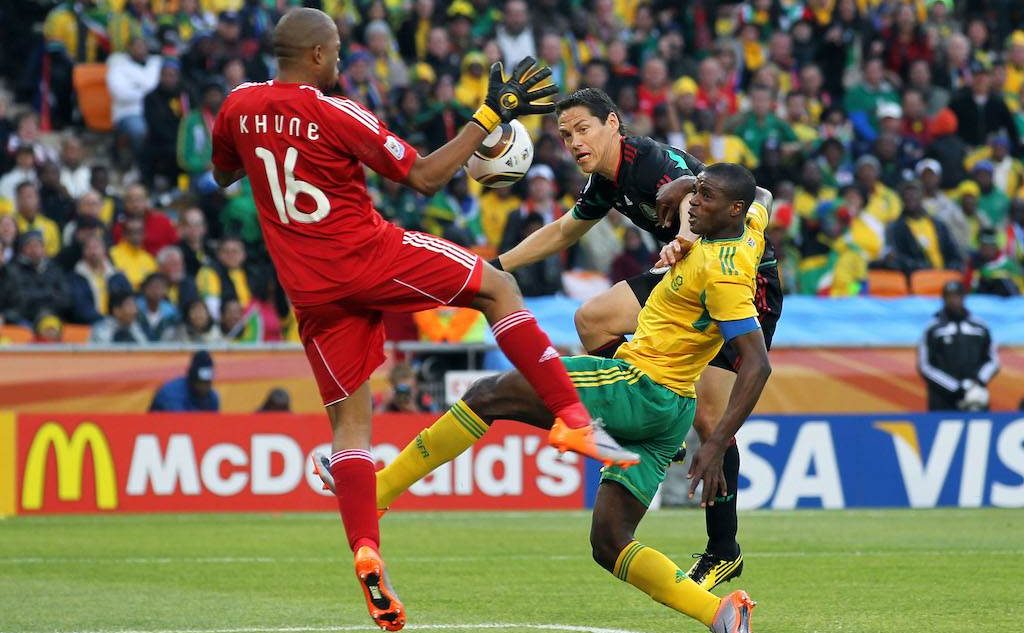
“You could tell the boy loved Kaizer Chiefs. So, I invited Khune to our shooting practice; I asked him to stand behind the goalkeeper and pick stray balls. As we did that, I noticed the goalkeeper was missing the balls, and Khune was diving and saving them. I asked him to come back on Saturday when I was training goalkeepers. He came, and I noticed he had potential. I started training them,” says Sephooa.
It was on that touchline at Milo Park, as young boys perfected their shooting skills, that Khune, the goal minder, was born. From that day on, Khune became the club’s Under 13 first-choice goalkeeper.
A year later, he moved to the Under 15s and had Mpho Makola as a teammate. “I saw a picture recently of us in the Under 15s. Of that group, Itu and I are the only ones that made it to the PSL,” Makola says, adding that Khune was so set on his goal to play for Amakhosi in the PSL.
Although Khune had cracked the junior ranks at Chiefs, albeit by accident, as he rose through the ranks, success was not guaranteed by any stretch of the imagination.
HE WILL NEVER BUY ME A BUBBLE GUM – SEPHOOA
Chiefs have a proud tradition of brilliant goalkeepers. When Khune was promoted to the senior side in 2004, the men between the sticks were the legendary duo of Brian Baloyi and Rowen Fernandez. They would not be easy to dislodge.
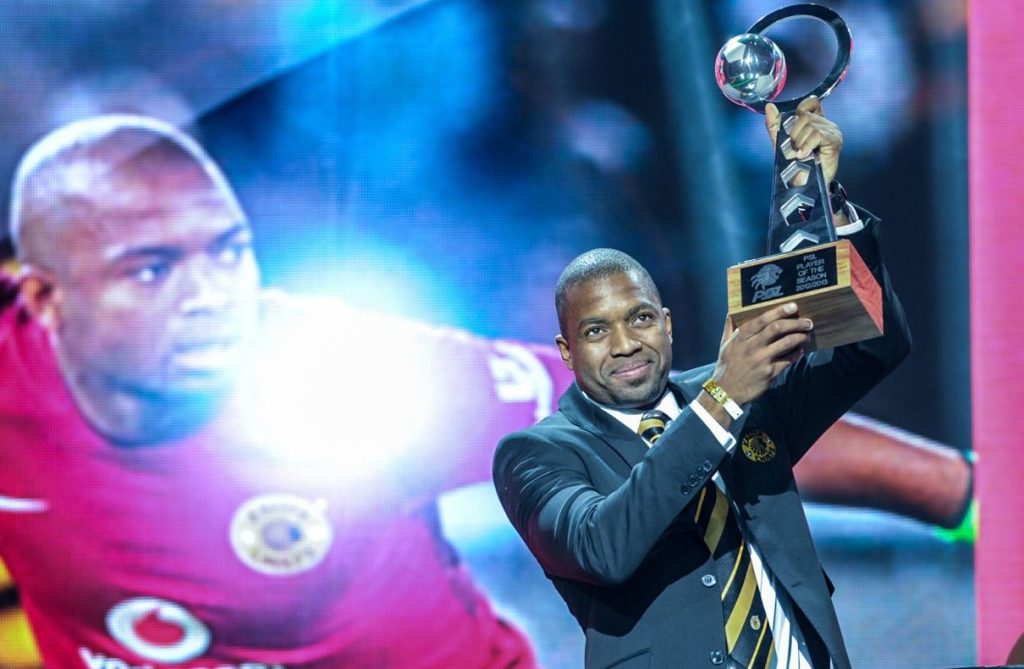
“I feel so good when I see a boy from Ventersdorp, where Terreblanche comes from, make it this far and become SA’s number 1. Everyone knows the way Terreblanche hated blacks, but a star came from that town and became number 1 in a World Cup tournament. I don’t care that he will never buy me bubble gum, but I’m just fulfilled he’s done well. I’ve done my job,” says Sephooa.
Rightly so, three league titles, two Nedbank Cup trophies and over 350 appearances for Chiefs later, Khune is undoubtedly one of Amakhosi’s greats. He achieved both dreams after being appointed Chiefs’ captain in August 2016. It is easy to marvel at what he has gone on to accomplish for club and country, but it could have been so different.
He could have been torn to bits by Terreblanche’s dogs. Khune could have let the poverty and hardships at home break his spirit and steal his dream. He could have turned back and gone home after that first night of sleeping at the train station.
RELATED STORY: Chiefs legend Khune to be honoured for 25 years of service

